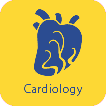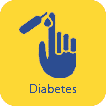I understand why smoking is a risk factor for lung disease and lung cancer but how does smoking affect the heart and vascular system?
The chemicals in cigarette smoke harm your blood cells. They can also damage the function of your heart and the structure and function of your blood vessels. This damage increases your risk of atherosclerosis, which is a disease in which a waxy substance called plaque builds up in the arteries. Over time, plaque hardens and narrows your arteries. This limits the flow of oxygen-rich blood to your organs and other parts of your body.
Coronary heart disease (CHD) occurs if plaque builds up in the coronary (heart) arteries. Over time, CHD can lead to chest pain, heart attack, heart failure, arrhythmias (irregular heart beat), or even death.
Smoking is a major risk factor for heart disease and when combined with other risk factors—such as unhealthy blood cholesterol levels, high blood pressure, and overweight or obesity—smoking further raises the risk of heart disease.
Smoking also is a major risk factor for peripheral arterial disease (P.A.D.). P.A.D. is a condition in which plaque builds up in the arteries that carry blood to the head, organs, and limbs. People who have P.A.D. are at increased risk for heart disease, heart attack, and stroke.










